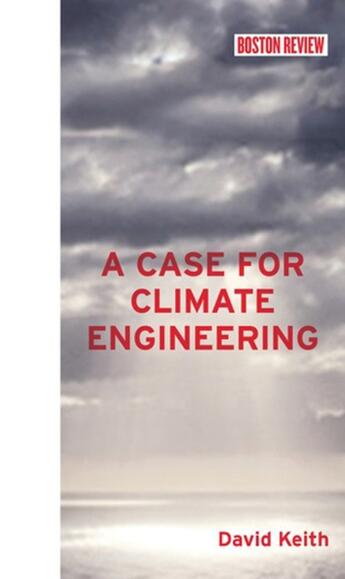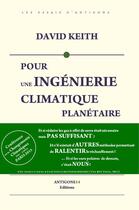-
Date de parution : 20/09/2013
-
Editeur :
Mit Press
-
EAN : 9780262019828
-
Série :
(-)
-
Support :
Papier
Résumé:
A leading scientist argues that we must consider deploying climate engineering technology to slow the pace of global warming. Climate engineering--which could slow the pace of global warming by injecting reflective particles into the upper atmosphere--has emerged in recent years as an... Voir plus
A leading scientist argues that we must consider deploying climate engineering technology to slow the pace of global warming. Climate engineering--which could slow the pace of global warming by injecting reflective particles into the upper atmosphere--has emerged in recent years as an extremely controversial technology. And for good reason: it carries unknown risks and it may undermine commitments to conserving energy. Some critics also view it as an immoral human breach of the natural world. The latter objection, David Keith argues in A Scientist''s Case for Climate Engineering , is groundless; we have been using technology to alter our environment for years. But he agrees that there are large issues at stake. A leading scientist long concerned about climate change, Keith offers no naive proposal for an easy fix to what is perhaps the most challenging question of our time; climate engineering is no silver bullet. But he argues that after decades during which very little progress has been made in reducing carbon emissions we must put this technology on the table and consider it responsibly. That doesn''t mean we will deploy it, and it doesn''t mean that we can abandon efforts to reduce greenhouse gas emissions. But we must understand fully what research needs to be done and how the technology might be designed and used. This book provides a clear and accessible overview of what the costs and risks might be, and how climate engineering might fit into a larger program for managing climate change.
Donner votre avis















